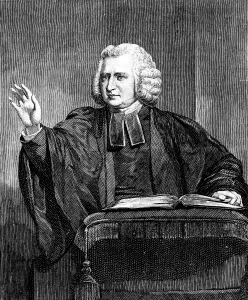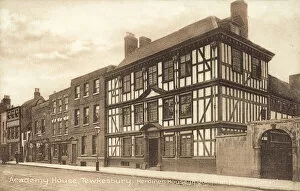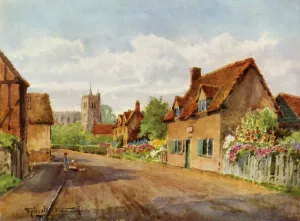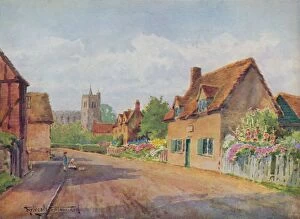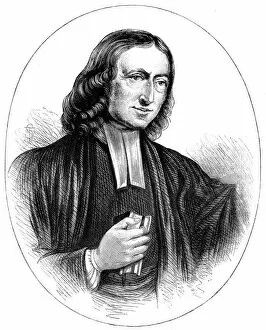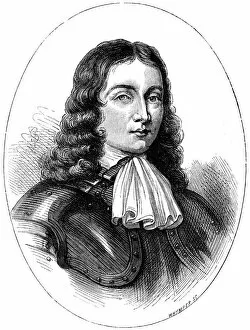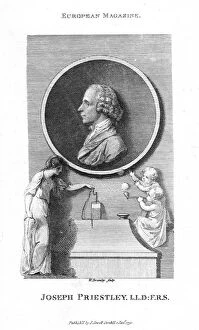Non Conformism Collection
"Unconventional Spirits: Celebrating Non-Conformism through the Ages" Step into the world of non-conformism
All Professionally Made to Order for Quick Shipping
"Unconventional Spirits: Celebrating Non-Conformism through the Ages" Step into the world of non-conformism, where individuals challenge societal norms and forge their own paths. From Charles Wesley, the 18th century English preacher who defied convention with his powerful hymns, to Joseph Priestley, whose portrait captures his revolutionary spirit. Academy House in Tewkesbury stands as a testament to those who dared to think differently. Its black and white photo evokes a sense of timelessness, reminding us that non-conformism knows no boundaries. Bunyan's Cottage in Elstow transports us back to 1943 when Henry Stannard captured its essence. This humble abode once housed John Bunyan, an iconoclast whose writings challenged religious orthodoxy. Reverend Thomas Beck of Deptford embodies the rebellious spirit of non-conformity in Thomson's striking portrait from 1830. His unwavering beliefs paved the way for future generations seeking freedom from conformity. The Reverend Thomas Doolittle M. A. , depicted by James Caldwall around 1775, exemplifies how non-conformists fearlessly pursued knowledge and enlightenment amidst adversity. Fronting the Metropolitan Tabernacle is an unknown creator's depiction from circa 1878—a symbol of dissent against traditional religious institutions and a beacon for those seeking alternative spiritual paths. St Thomas Square chapel and schools in Hackney were built in 1841—an architectural marvel designed to accommodate free thinkers yearning for intellectual liberation under F Ireland's watchful eye. Transporting us back to London in 1720 is The Heretical Synod at Salters Hall Chapel—a historic gathering challenging orthodox beliefs with courageous voices echoing throughout time. Quaker Uproar immortalized by Isaac Robert Cruikshank takes us on a journey through London streets during tumultuous times—where Quakers stood tall against oppression and fought for their beliefs.

